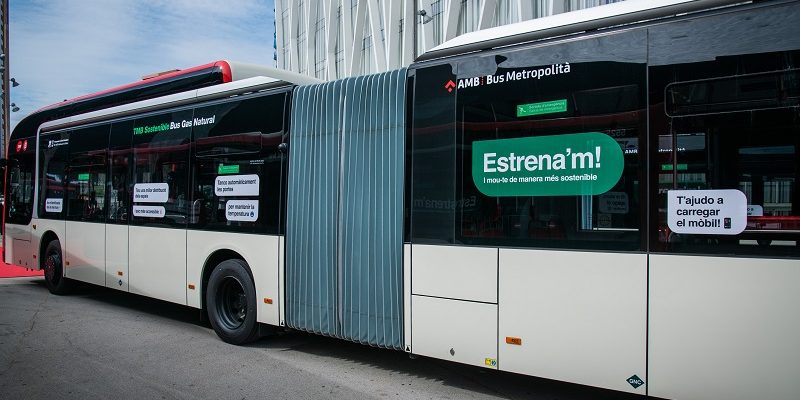The drastic increase in global temperatures must be stopped imminently to avoid fatal consequences for ecosystems and humanity. To achieve this goal, the European Union has proposed to reduce net greenhouse gas (GHG) emissions by at least 55% by 2030 and become a climate neutral continent by 2050. In this context, Europe must reduce its import dependency on fossil fuels, and biomethane will play a crucial role in achieving this.
To promote the development of this renewable fuel, Cetaqua, a water technology center, has launched the European research project SEMPRE-BIO, co-financed by the European Commission’s Horizon Europe programme. The objective of the project, in which Aigües de Barcelona, the Barcelona Metropolitan Area, Naturgy, Transports Metropolitans de Barcelona (TMB) and other partners from six different European countries are also participating, is to demonstrate new solutions and profitable biomethane production ways: it will seek to reduce investment and operating costs of biogas plants and extend its production potential through new waste recovery routes.
It is expected that with the application of the solutions proposed in the initiative, circular economy projects will be promoted on a local scale and dependence on gas imports will be reduced. On a large scale, SEMPRE-BIO aims to promote the use of biomethane as a substitute for fossil fuels used in transport and in the natural gas network, with an estimated reduction in CO2 emissions of 213 million tons per year by 2050.
To achieve its objective, SEMPRE-BIO will create three innovation ecosystems in which, through co-creation processes, specific solutions will be proposed for each of the representative scenarios of the different situations existing in Europe with regard to biomethane production. Specifically, five innovative technologies will be tested, which will contribute to diversifying the conversion technology base for the production of biomethane, and its replication in other plants will be encouraged.
On the other hand, a comprehensive technological and economic evaluation will be carried out that will show the benefits of these solutions in comparison with fossil gas and conventional biogas upgrading technologies, overcoming existing barriers to their mass adoption. Said evaluation will focus mainly on aspects related to improving the efficiency of biomethane production and reducing costs, but will also have a strong focus on minimizing GHG emissions, with the aim of increasing sustainability and fostering circular economy models.
SEMPRE-BIO will be tested in three plants throughout Europe. In Spain, the Baix Llobregat ecofactory, managed by Aigües de Barcelona, will be the space where biomethane production technologies will be demonstrated that will allow the recovery of currently untapped biogas flows. The biogas will be converted into CNG through a power-to-gas hydrogen methanation process, for use in public transport in Barcelona.
On the other hand, at the Bourges green waste treatment plant, in France, biomethane will be produced from indigestible urban green waste to be injected into the network. Finally, in Adinkerke, Belgium, De Zwaenepoel, an off-grid natural gas farm with low biogas production, will be the stage where SEMPRE-BIO will demonstrate biogas purification solutions and bio-LNG production, ideal for heavy transport. The biomethane generated here will be stored locally in a liquefied form and will be distributed by road transport.
Photo: TMB/Aigües de Barcelona
Source: Cetaqua







